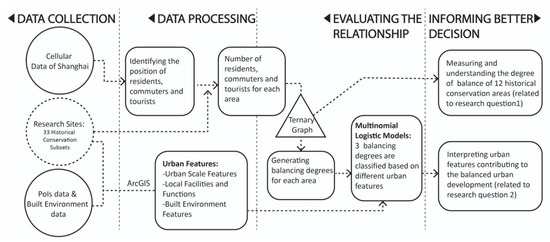Digital Processes in Social, Cultural and Ecological Conservation
A topical collection in Sustainability (ISSN 2071-1050).
Submission Status: Closed | Viewed by 8703Editors
Interests: sociology; teaching sociology; sociology of education; organisations; organisational culture; research; scientific communication; psycho-sociology of educational organisations; digital society; digital literacy and society 5.0
Special Issues, Collections and Topics in MDPI journals
Interests: sociology of science; sociology of health; teaching sociology
Special Issues, Collections and Topics in MDPI journals
Topical Collection Information
Dear Colleagues,
Focus:
“In confronting the challenges we face as a species on this planet, thinking deeply about conservation and what we want to conserve takes on new meaning and may point a way forward” (Howard et al., 2020, p. 2). The digital dimension is currently unavoidable and takes on an increasing centrality in social life, with digital literacy being a critical competence. This Topical Collection, “Digital Processes in Social, Cultural, and Ecological Conservation”, seeks to be a privileged space for framing, discussing, assessing, and reflecting on the implications of technology and digital culture, as elements which are increasingly present in contemporary societies and which are relevant in the reconfiguration of the reference contexts of human action and in shaping the relationships between human and nonhuman actors, in the polyhedral conservation process, expression of interdependent relationships between nature and culture—not limited to the conservation of wilderness, but including human beings in this process—imbricated in a conception of nature as a source of values, marked by the polarization between the intrinsic value of nature and the subsumption of values that are natural to economic values.
Thus, contributions of potential authors are welcome on the aspects that shape the articulation between the complex and polyhedral processes of the digitalization of society and conservation in their various components and dimensions, namely, the social, cultural, ecological, political,l and economic ones, developed from a stance that favors the perspectives of social sciences and environmental sciences, emphasizing, however, a plural scientific project centered on interdisciplinarity and multidisciplinarity.
Howard, P., Corbett, M., Burke-Saulnier, A. and Young, D. 2020. Education futures: conservation and change. Paper commissioned for the UNESCO Futures of Education report (forthcoming, 2021).
Scope:
Without being exhaustive in this indication:
- Digital and conservation management
- (Socio)environment conservation, sustainability, and digital mobilization
- Conservation governing in a digital society
- Digital conservation
- Digital innovation in conservation processes
- Digital technologies and tools on conservation
- Ethical and technical challenges in conservation and digital methods application
- Interdisciplinary and multidisciplinary conservation activities
- Conservation and digital opportunities
- Conservation projects management and their regulation in digital environments
Purpose:
The purpose of this topical collection is to contribute to the development of the state-of-the-art in this research area, whether in a more practical or a more theoretical way, through the publication of manuscripts of different types, based on a solidly supported argumentation, in the form of research article, review, comment or original reasoned reflection in diverse contexts.
Dr. Sandro Serpa
Prof. Carlos Miguel Ferreira
Guest Editors
Manuscript Submission Information
Manuscripts should be submitted online at www.mdpi.com by registering and logging in to this website. Once you are registered, click here to go to the submission form. Manuscripts can be submitted until the deadline. All submissions that pass pre-check are peer-reviewed. Accepted papers will be published continuously in the journal (as soon as accepted) and will be listed together on the collection website. Research articles, review articles as well as short communications are invited. For planned papers, a title and short abstract (about 100 words) can be sent to the Editorial Office for announcement on this website.
Submitted manuscripts should not have been published previously, nor be under consideration for publication elsewhere (except conference proceedings papers). All manuscripts are thoroughly refereed through a single-blind peer-review process. A guide for authors and other relevant information for submission of manuscripts is available on the Instructions for Authors page. Sustainability is an international peer-reviewed open access semimonthly journal published by MDPI.
Please visit the Instructions for Authors page before submitting a manuscript. The Article Processing Charge (APC) for publication in this open access journal is 2400 CHF (Swiss Francs). Submitted papers should be well formatted and use good English. Authors may use MDPI's English editing service prior to publication or during author revisions.
Keywords
- digital
- societies
- ecological
- conservation
- sustainability








